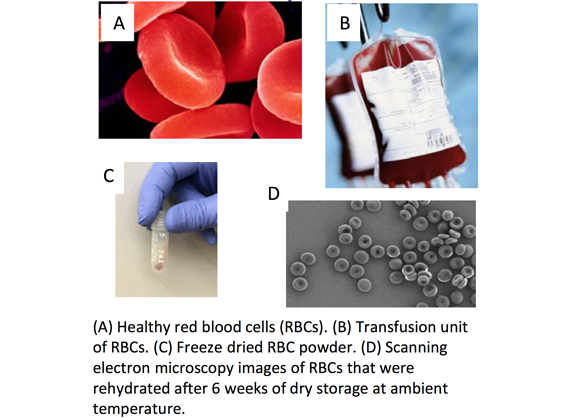Evaluation of Preserved Blood for Transfusion Therapy in Reduced Gravity
PI: Michael Menze, Jonathan Kopechek (Co-I), University of Louisville
PI: Michael Menze, Jonathan Kopechek (Co-I), University of Louisville

- TA06 Human Health, Life Support and Habitation Systems
The simple storage conditions and long shelf life resulting from this new technique would make the preserved red blood cells attractive for the treatment of trauma, radiation-induced anemia, and other medical conditions that could occur during an exploration space mission.
In the first flight campaign, small volumes of the dehydrated red blood cells will be rehydrated in storage vials during periods of Lunar, Martian, and 0-G. A second flight campaign will evaluate the rehydration of a standard unit of red blood cells (500 ml), assess uniformity of mixing, size and shape of the red blood cells and the viability and function of the red blood cells, and assess if there are any problems when trying to transfuse the red blood cells into an analog limb vein model.
The anticipated result of this project is the confirmation that the dehydrated red blood cells can be successfully rehydrated and transfused consistent with the performance requirements of a Lunar colony or an expedition to Mars, elevating the technology from TRL 4 to TRL 6.
Technology Details
-
Selection DateREDDI-F1-18 (Aug 2018)
-
Program StatusActive
- 1 Parabolic
Development Team
-
PIMichael Menze
-
PI Organization
-
Co-IJonathan Kopechek
-
Co-I Organization
-
SponsorNASA
-
More Information

